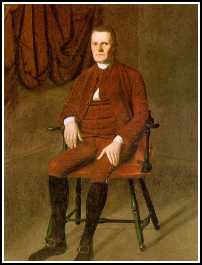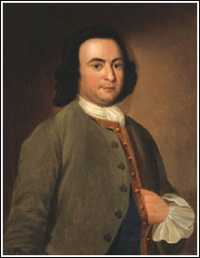FRtR > Documents > The Anti-Federalist Papers > 3
The Anti-Federalist Papers
The Constitutional Convention Debates
*** Index
* Quote
* Context ***
 MR. SHERMAN
MR. SHERMAN - opposed the election by the people, insisting that it ought to be by the State legislatures. The people he
said, immediately should have as little to do as may be about the Government. They want information and are constantly
liable to be misled.
- MR. GERRY.
- The evils we experience flow from the excess of democracy. The people do not want virtue, but are the dupes
of pretended patriots. In Massachusetts it had been fully confirmed by experience that they are daily misled into the most
baneful measures and opinions by the false reports circulated by designing men, and which no one on the spot can refute. one
principal evil rises from the want of due provision for those employed in the administration of Government. It would seem to
be a maxim of democracy to starve the public servants. He mentioned the popular clamour in Massachusetts for the reduction
of salaries and the attack made on that of the Governor though secured by the spirit of the Constitution itseff. He had he said
been too republican heretofore: he was still however republican, but had been taught by experience the danger of the levolling
spirit.

- MR. MASON,
- argued strongly for an election of the larger branch by the people. It was to be the grand depository of the
democratic principle of the government. It was, so to speak, to be our House of Common~~It ought to know and sympathize
with every part of the community; and ought therefore to be taken not oniy from different parts of the whole republic, but
also fiom different districts of the larger members of it, which had in several instances particularly in Virginia different
interests and views arising from difference of produce, of habits etc., etc. He admitted that we had been too democratic but
was afraid we should incautiously run into the opposite extreme. We ought to attend to the rights of every class of the people.
He had often wondered at the indifference of the superior classes of society to this dictate of humanity and policy;
considering that however affluent their circumstances, or elevated their situations, might be, the course of a few years, not
only might but certaiuly would, distribute their posterity throughout the lowest classes of Society. Every selfish motive
therefore, every family attachment, ought to recommend such a system of policy as would provide no less carefully for the
rights and happiness of the lowest than of the highest orders of Citizens.
- MR. WILSON
- contended strenuously for drawing the most numerous branch of the legislature immediately from the people.
He was for raising the federal pyramid to a considerable altitude, and for that reason wished to give it as broad a basis as
possible. No government could long subsist without the confidence of the people. In a republican Government this confidence
was peculiarly essential. He also thought it wrong to increase the weight of the State Legislatures by making them the electors
of the National Legislature. All interference between the general and local governments should be obviated as much as
possible. On examination it would be found that the opposition of States to federal measures had proceded much more from
the officers of the States, than from the people at large.
- Mit. MADISON
- considered the popular election of one branch of the National Legislature as essential to every plan of free
Government. He observed that in some of the States one branch of the Legislature was composed of men already removed
from the people by an intervening body of electors. That if the first branch of the general legislature should be elected by the
State Legislatures, the second branch elected by the first, the Executive by the second together with the first; and other
appointments agaln made for subordinate purposes by the Executive, the people would be lost sight of altogether; and the
necessary sympathy between them and their rulers and officers, too little left. He was an advocate for the policy of refining
the popular appointments by successive filtrations, but thought it might be pushed too far. He wished the expedient to be
resorted to only in the appointment of the second branch of the Legislature, and in the Executive and judiciary branches of the
Government. He thought too that the great fabric to be raised would be more stable and durable, if it should rest on the solid
foundation of the people themselves, than if it should stand merely on the pillars of the Legislatures.
- MR. GERRY
- did not like the election by the people. The maxims taken from the British constitution were often fallacious
when applied to our situation which was extremely different. Experience be said had shown that the State legislatures drawn
irnmediately from the people did not always possess their confidence. He had no objection however to an election by the
people if it were so qualified that men of honor and character might not be unwilling to be joined in the appointments. He
seemed to think the people might nominate a certain number out of which the State Legislatures should be bound to choose.
 MR. SHERMAN
MR. SHERMAN 
 MR. SHERMAN
MR. SHERMAN 